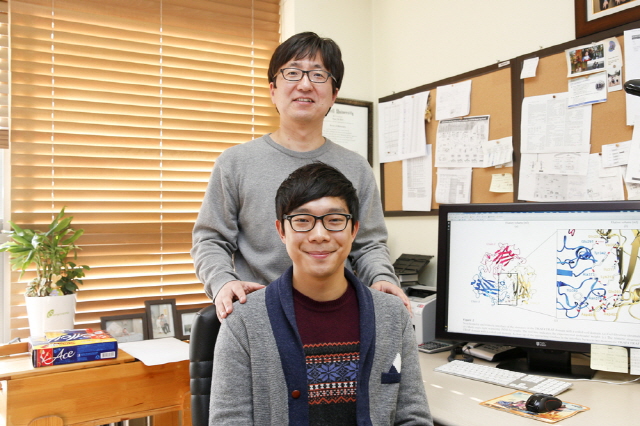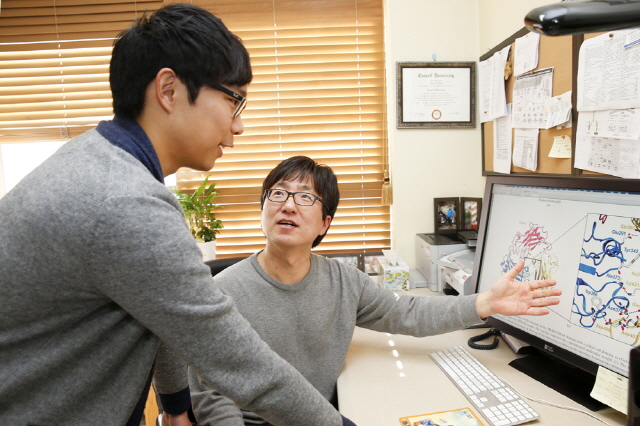Expected to provide important information for developing treatments for neurodegenerative diseases, breast cancer and lung cancer
Published in the world's top journal in the biophysics sector <Acta Crystallographica>
[Jan 15, 2014]
The research team of Professor Park, Hyun Ho (40) of the YU School of Biotechnology is receiving attention from academic circles by providing the cornerstone for developing breast cancer treatment. They revealed the trimeric structures of the 'TRAF4' proteins, which is known to cause breast and lung cancer.
TRAF proteins act as a medium for sending cellular signals in the regulation of inflammation response. There are seven TRAF proteins from TRAF1 to TRAF7. It has been reported that when it operates abnormally in the inflammatory reaction adjustment process, it can cause various illnesses such as a variety of cancers, immunologic abnormalities, allergies, atherosclerosis, neurodegenerative diseases, diabetes, obesity, etc.
It is known that TRAF4 proteins play an important role in the fetal neurogenesis process. It has recently been reported that when there is an over expression of TRAF4 in the inflammatory reaction adjustment process, it can cause breast cancer and lung cancer, and thus the importance of TRAF4 proteins are being examined with interest by cancer and immunity researchers.
At this point, Professor Park's research team became the first in the world to reveal the trimeric structure of the TRAF4 protein, turning on a green light for developing the breast cancer and lung cancer treatments.
Professor Park, Hyun Ho, who led this research, said, "Still a lot of follow-up research is needed for the commercialization of the actual treatment," and added, "For this, multiple peptides that inhibit signal transduction to prevent the over expression of TRAF4 proteins in inflammatory reactions were made, and animal tests are currently being carried out to check if these peptides have treatment effects for not only breast and lung cancer, but also other neurodegenerative diseases."
The research results were carried in the January 2014 issue of the <Acta Crystallographica Section D: Biological Crystallography>, the world's top academic journal on biophysics with an impact factor (IF) of 14.1. Professor Park who led the research placed his name as the corresponding author, while the primary author was Yoon, Jong Hwan (27, 4th term in master's degree course). In addition, the research results were also introduced in 'People brightening Korea' provided by the 'Biological Research Information Center (BRIC)'.











